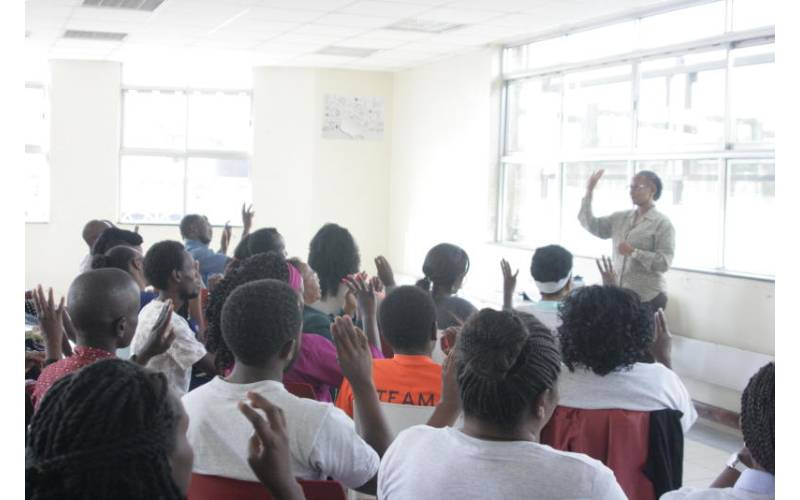
In hindsight, I should have taken my first hearing loss diagnosis more seriously. I had noticed my struggle, especially in crowded places, but I dismissed it as something that would pass with time. Years later, a second opinion from a specialist confirmed what I had been avoiding all along. Hearing loss would become a defining aspect of my life.
Around this time, I was deep in the draining cycle of job applications and interviews. Each time I introduced myself, I debated on whether to add, ‘and I have a hearing problem.’ I hated having to say it. Would it come off as a sympathy card or worse, would it work against me?
Hearing loss didn’t just affect my career progress; it changed every aspect of my life. And if statistics are anything to go by, I speak for many.
Globally, over 430 million people suffer from hearing loss requiring rehabilitation. This number is projected to double by 2050. In Kenya, reports indicate that approximately 10 percent of the population may have varying degrees of hearing impairment. Factors such as prolonged exposure to loud noise, ear infections, untreated medical conditions, and unsafe listening practices such as frequent use of earphones at high volumes have exacerbated situation.
Even worse, data shows that hearing loss which has mostly been associated with the elderly is increasingly common among younger demographics, including infants born with congenital hearing defects. Yet, early diagnosis remains elusive due to limited awareness, prohibitive costs, and inadequate health infrastructure. Many children go undiagnosed until their developmental milestones are delayed, while many adults, like me, only seek help when the impact becomes too heavy to ignore.
The World Health Organisation (WHO) stresses the importance of early detection, newborn hearing screenings and access to affordable hearing aids. Countries like India subsidize cochlear implants for low-income families, while Rwanda provides free surgeries and affordable hearing aids for children with hearing impairment. Kenya urgently needs to be as proactive.
Beyond equipping our public facilities with specialists and screening equipment, we must embrace a culture shift toward ear health that will normalize routine auditory screenings in schools and hospitals as part of a broader public health strategy. Public awareness is also a critical tool that will greatly impact the management of hearing loss. Many cases of hearing loss can be prevented or managed early through education on safe listening practices, the importance of regular screening and fighting stigma.
- Battle of the bite: Five reasons why you should go for whole fruits not juice
- A sip a day: Sedentary non coffee drinkers face 60pc higher risk of death- Study
- Nutrition: Missing pillar in Kenya's healthcare system
- Kala-azar: Body-wasting disease, leaves tragedy in its wake
Keep Reading
Hearing loss isn’t just about the inability to hear, it is a total breakdown of one’s humanness. It is about moments lost in conversations, the brilliant ideas that are never shared, career opportunities that slip away, and the relationships that never get to start. It is about the isolation that sets in when the world around you can’t figure you out.
With the advancement in technology and the current ambitious health scheme, however, no child should struggle to reach their milestones due to an undiagnosed or untreated condition. No adult should have to live with the fear that hearing loss will cost them a job, a relationship, a fulfilling life.
Ms Wekesa is a development communication consultant
 The Standard Group Plc is a multi-media organization with investments in media platforms spanning newspaper print
operations, television, radio broadcasting, digital and online services. The Standard Group is recognized as a
leading multi-media house in Kenya with a key influence in matters of national and international interest.
The Standard Group Plc is a multi-media organization with investments in media platforms spanning newspaper print
operations, television, radio broadcasting, digital and online services. The Standard Group is recognized as a
leading multi-media house in Kenya with a key influence in matters of national and international interest.











